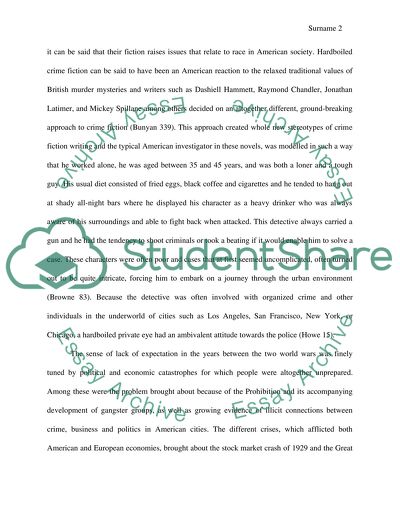Cite this document
(“Hardboiled crime Fiction. (2,000) Essay Example | Topics and Well Written Essays - 1750 words”, n.d.)
Retrieved from https://studentshare.org/literature/1483985-hardboiled-crime-fiction
Retrieved from https://studentshare.org/literature/1483985-hardboiled-crime-fiction
(Hardboiled Crime Fiction. (2,000) Essay Example | Topics and Well Written Essays - 1750 Words)
https://studentshare.org/literature/1483985-hardboiled-crime-fiction.
https://studentshare.org/literature/1483985-hardboiled-crime-fiction.
“Hardboiled Crime Fiction. (2,000) Essay Example | Topics and Well Written Essays - 1750 Words”, n.d. https://studentshare.org/literature/1483985-hardboiled-crime-fiction.


